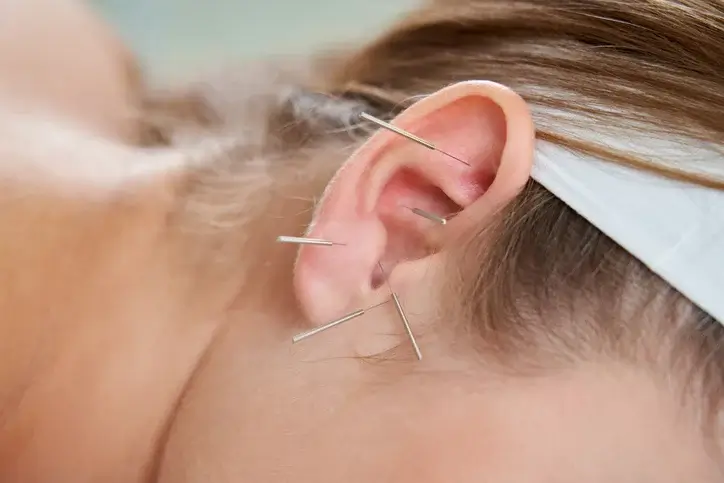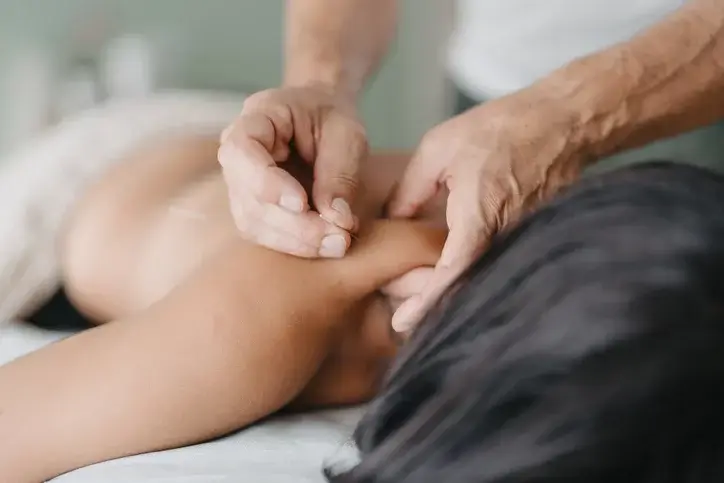Western medicine tends to pathologize anxiety and stress. Doctors claim the condition is all in your head: Yet, as a patient, you feel differently, from tense muscles to a rapid heartbeat and sweating palms to, on rare occasions, flu-like symptoms.
Often referenced in integrative medicine, Chinese medicine has deployed acupuncture for thousands of years to help manage or treat a range of conditions involving pain and contracted muscles. In the present, research has found a correlation between acupuncture, which involves inserting needles into specific pressure points or medians associated with energy flow along the body, and managing anxiety and stress.
Learn why holistic functional medicine practitioners like CentreSpringMD recommend acupuncture for stress and anxiety.
Traditional Treatments for Anxiety and Stress
Going back to the “It’s all in your head” factor, allopathic treatments for anxiety often involve a combination of anti-anxiety medications and cognitive behavioral therapy to discuss triggers.
This approach often doesn’t address the physical symptoms a patient may be experiencing. Meanwhile, advice for stress generally involves telling a patient to “relax,” “calm down,” or “do more self-care,” without considering potential root causes or factors exacerbating these feelings.
How Acupuncture for Stress and Anxiety Works
Specifically, within the context of stress and anxiety, acupuncture works as a nervous system regulator by balancing the autonomic nervous system’s multiple branches. Patients will have sterile thin needles inserted at points and in varying depths to manage pain and energy and encourage the body to heal itself and relax more efficiently. The needles tend to be left in said points for an average of 30 minutes before being removed.
Dating back to before 100 B.C., Chinese medicine calls this technique regulating qi in relation to health: A disruption in qi or energy correlates with increased health concerns. Blocked, declining or imbalanced energy can emerge as a number of conditions. Acupuncture helps restore both energy, relaxation, and balance – also known as homeostasis – and improve how the body heals itself. Healing may stem from the body releasing additional endorphins to reduce pain felt, better-controlling present inflammation, and enhancing the immune system.

Points to regulate qi vary based on condition. For anxiety, expect to have the needles inserted near the ears, eyebrows, inside of your wrists, or the breastbone.
Acupuncture for Stress and Anxiety: Research
Multiple studies have attempted to examine this relationship to determine why and how acupuncture helps patients better manage anxiety and stress:
- A 2015 study found that with multiple sessions over a period of 12 weeks, patients responded better to acupuncture over medication and traditional psychotherapy for treating anxiety.
- A study published in the Journal of Acupuncture and Meridian Studies found that students who underwent a 20-minute acupuncture session saw improved memory and less anxiety compared to those who didn’t go through the therapy.
- Researchers at Georgetown University examined the body’s response to acupuncture, particularly hormonal release. Using rats as subjects, researchers noticed that acupuncture helped decrease peripheral HP hormones and that acupuncture point EA St₃₆ can help manage higher stress levels.
- Another study involving rats, research published in 2016 found that acupuncture can alter the body’s fight-or-flight response.
- Research from 2021 found that acupuncture appears to regulate the areas of the brain that send pain signals and control emotional response.
- Research published in a 2021 edition of Annals of General Psychiatry examined the effects of acupuncture on patients living with generalized anxiety disorder and compared it to other treatments. Data indicated acupuncture helps better manage symptoms over placebo treatments and anxiety medication.
- A 2022 study in the European Review for Medical and Pharmacological Studies compared acupuncture to drug therapies for patients about to undergo gallbladder surgery or hernia repair. Researchers found that patients undergoing anxiety were more likely to report feeling calm compared to those who took medication.
What to Expect During Acupuncture for Stress or Anxiety
Just as with all integrative medicine treatments, acupuncture for stress or anxiety tends to involve a specific, more personalized approach:
- Your practitioner or therapist will discuss the symptoms you’re looking to address, be it mental or physical.
- Expect to have your medical history discussed and to talk about your goals of treatment.
- Once you’re relaxing on a table, needles no wider than a strand of hair will be inserted into your skin to target a series of pressure or energy points, which are often located near your nerves. Needles may also have an electric pulse applied. Patients typically don’t report any pain, and you’ll likely just feel a pinch or a sense like an area is heavy.
- The needles will be removed within 20 to 30 minutes.
- Results won’t always be immediate. Rather, changes may emerge gradually. Patients typically require multiple visits to see a decline in symptoms or stress.
- However, after each appointment, the placement of needles stimulates the nervous system so that you feel less pain and anxiety, and your body begins to feel more balanced and heal more effectively.
- Acupuncture often won’t be used alone. You’ll additionally be given recommendations regarding nutrition, exercise, and psychotherapy that factor in how the brain and body work together to reduce symptoms related to anxiety or stress.

The Benefits of Acupuncture for Stress and Anxiety
Managing anxiety or stress through acupuncture can:
- Decrease, if not eliminate, the amount of medication you use to feel calm and relaxed.
- Additionally, reduce blood pressure and inflammation – two physical factors that often coincide with long-term stress or anxiety.
- Reduce any pain, tenseness, nausea, increased pulse, and insomnia you may be experiencing in response to stress or anxiety.
- Help you sleep better, resulting in less daily stress, improved mental clarity, and less physical pain and brain fog.
- Calm the brain, lessening the likelihood you’ll experience repetitive thoughts.
*
Looking for a more naturopathic approach to managing anxiety or stress? Turn to CentreSpringMD. We’re a holistic primary care practitioner specializing in integrative family medicine and wellness. Interested in learning more? Contact us today to set up a virtual appointment.
Resources:
https://www.healthline.com/health/acupuncture-for-anxiety
https://www.everydayhealth.com/news/why-acupuncture-works-anxiety-relief/
https://www.health.com/condition/anxiety/acupuncture-for-anxiety
https://www.medicalnewstoday.com/articles/acupuncture-for-anxiety
https://centrespringmd.com/acupuncture-what-it-is-how-its-used-side-effects/
https://pubmed.ncbi.nlm.nih.gov/25595195/
https://www.sciencedirect.com/science/article/pii/S2005290112002154
http://www.ncbi.nlm.nih.gov/pubmed/23386059
https://pubmed.ncbi.nlm.nih.gov/27348920/
https://www.ncbi.nlm.nih.gov/pmc/articles/PMC7873369/
https://www.ncbi.nlm.nih.gov/pmc/articles/PMC9750622/
https://www.europeanreview.org/wp/wp-content/uploads/0900-0905.pdf
